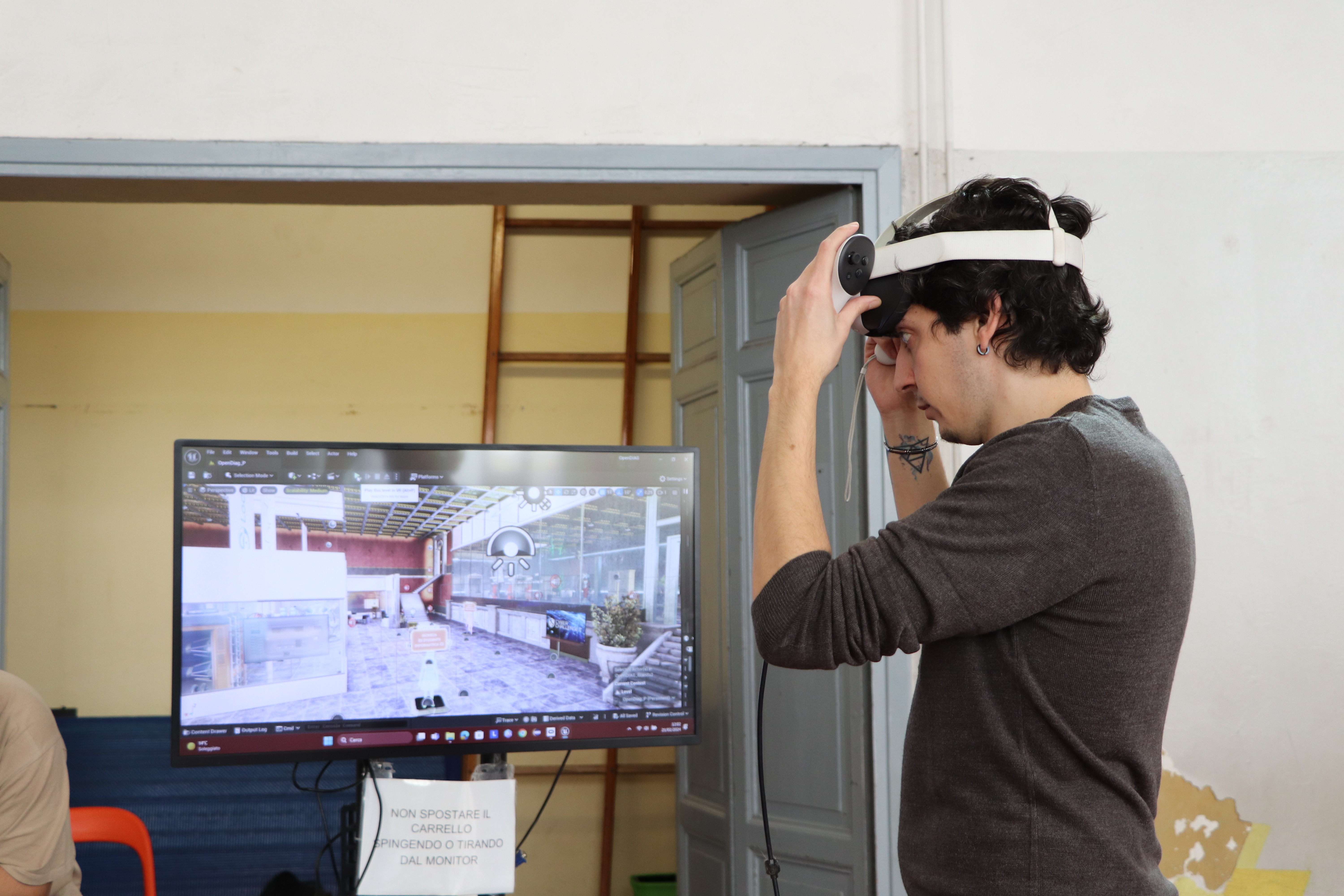Flavia Monti is confident about her future. With a master’s degree and PhD in Engineering in Computer Science from Sapienza University of Rome in her hands, she’s set to seize many professional opportunities and make significant contributions to the field. “This might take many different forms, ranging from educational initiatives and industry collaborations to research and innovation,” she says.
This is all thanks to the university’s Department of Computer, Control and Management Engineering (DIAG). Here, aspiring engineers come to gain specialised expertise that’ll set them up for roles such as software analysts, project engineers, and network administrators. “With the provision of cutting-edge resources, research funding opportunities, and mentorship from distinguished researchers, DIAG is actively supporting me on this journey,” Monti adds. “I am confident that the ongoing support from DIAG will play a significant role in advancing my professional journey.”
Founded in 1303 AD, Sapienza University of Rome is one of the oldest universities in the world. Today, it is ranked 108th in Engineering and Technology globally (QS World University Rankings 2023), second in Italy for “Automation and Control” and Computer Science and Engineering (Academic Ranking of World Universities 2023) and third in Italy for Computer Science (THE World University Rankings 2024).
DIAG is an award-winning regional leader and research powerhouse in information engineering, a discipline that deals with the generation, distribution, analysis, and use of information, data, and knowledge in systems. Here, innovation and research thrive, as do multidisciplinarity and experiential learning — both of which are crucial in training DIAG students to analyse and design complex systems, evaluate the impact of implemented solutions (both in technical and organisational aspects) and assess the economic, social, and ethical implications associated with them.

Skills gained here are highly applicable to professional positions even in different sectors. Source: Sapienza University of Rome
Both within and beyond the classroom, students like Monti interact with peers and professors from various departments. “Working on a real-world industrial project to improve production quality control, I encountered complex problems that required me to apply abstract ideas to real-world situations,” she says. “This involvement forced me to think around challenging situations, encouraging creativity and critical thinking to produce original answers.”
Ilaria Ciocci, who received her master’s degree in Management Engineering just this year, loved how the programme combined managerial courses with typical engineering disciplines which tackle quantitative methods and analysis to support decision-making processes. “In fact, the programme includes studies in Economic-Management, Management Mechanics and Optimisation areas, providing knowledge from both a managerial and a technical point of view,” she says. “Integrating these disciplines allows you to understand how engineering principles can be applied to management.”
Like Monti, she enjoyed learning by doing and reaped various new skills. All Sapienza Information Engineering students stand out for the transversality of their skills, flexibility, problem-solving know-how and ability to operate in various application contexts. “I would say that the three top skills that I have developed so far are problem-solving, time management, and analytical skills since I had to face a lot of different and challenging tasks during my academic journey,” she says.
It’s by specialising in “Decision-making Models for Management Engineering” that Ciocci discovered a passion for mathematical optimisation and machine learning. She aims to build a career in these fields and plans to pursue a PhD in Operations Research, “I am confident that my education at such a renowned institution as Sapienza University of Rome has equipped me with the necessary expertise to pursue my career aspirations, thanks to networking opportunities and the solid foundation I have received from esteemed professors,” she says.
Her prospects are promising — the employment rate of Sapienza graduates three years after graduation hovers around 90%.

DIAG offers graduate degrees in Artificial Intelligence and Robotics, Control Engineering, and Data Science, Engineering in Computer Science, and Management Engineering. Source: Sapienza University of Rome
Besides Engineering in Computer Science and Management Engineering, the DIAG also offers master’s degrees in Artificial Intelligence and Robotics, Control Engineering, and Data Science. The latter was what Marco D’Ercole chose after careful analysis of his options. He liked that the programme focuses on project-based coursework and group efforts. “It was essential to put one’s technical skills, knowledge and experience at the service of the group, seeking ways of dialogue as equals despite coming from different bachelor’s degrees,” he says.
D’Ercole appreciates being able to form his own path by taking part in activities and courses offered by other programmes. “This desire to know as much as possible and the desire to never want to be bored were what led me first to undertake a bachelor’s degree in statistics and then later data science,” he says.
To D’Ercole, DIAG succeeds in highlighting the engineering aspect of Data Science. This is due to three key factors. Firstly, there are many different programmes that have enabled him to understand their uses, their different fields of application and his interests. This pairs well with the “great preparation of the professors” and the method of assessment, which is based on the projects he completes. “This allows you to develop the preparation you have had in class in a practical way, applying what you have learnt,” he says.
Bright minds of all backgrounds and who dream of a successful future in Information Engineering are welcome to join DIAG. Those with undergraduate degrees — that provide a foundation in mathematics and science applicable to rigorous design and development methodologies that lead to the realisation of complex systems — are ideal applicants. As Sapienza is public, tuition fees are affordable and takes into account a student’s financial standing.
Follow Sapienza University of Rome on Facebook, Instagram, X, and YouTube for more information.










